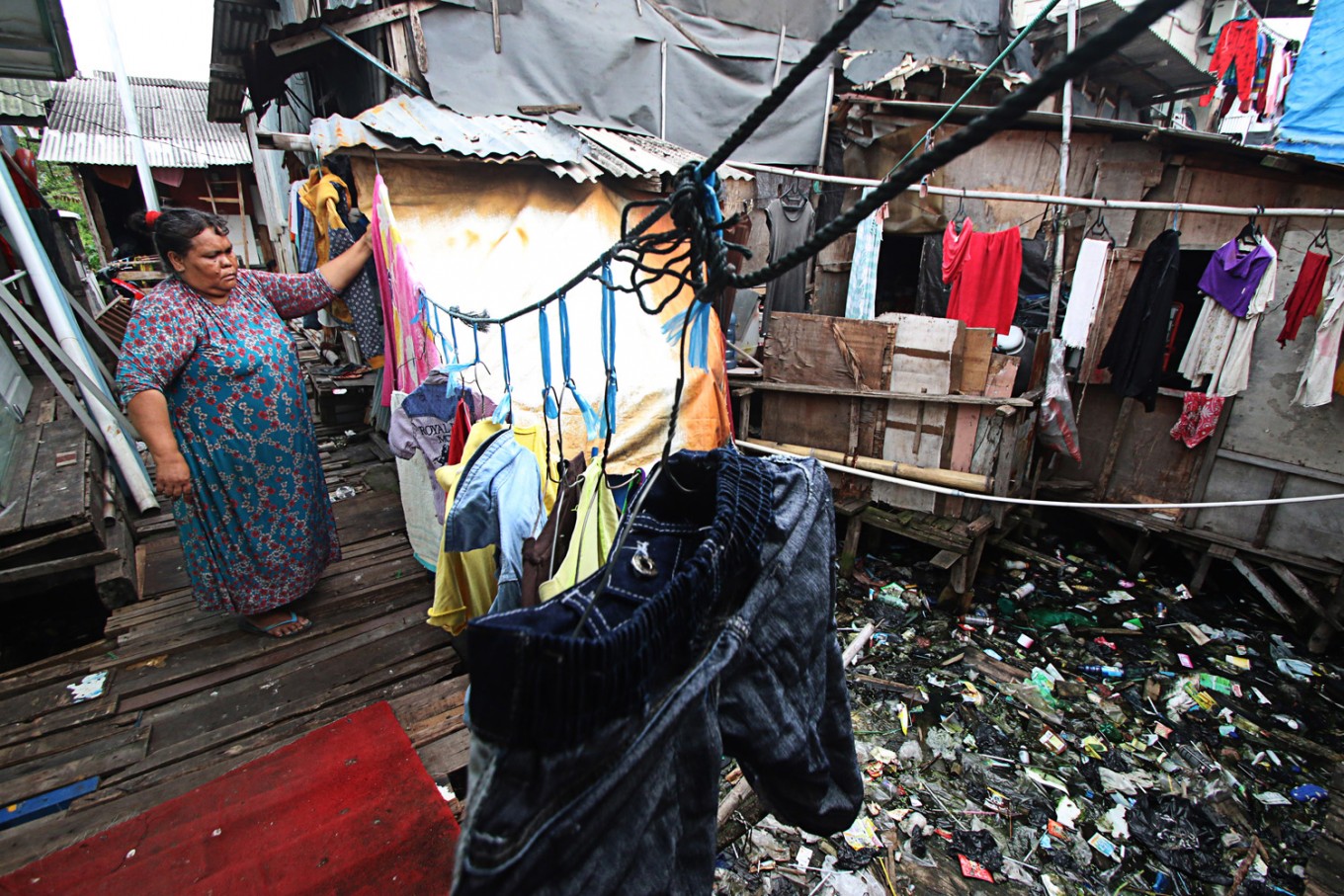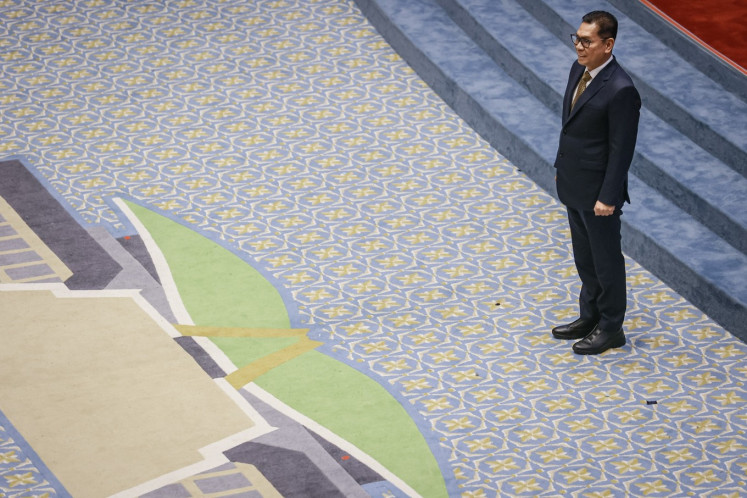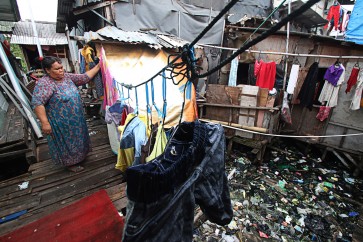Popular Reads
Top Results
Can't find what you're looking for?
View all search resultsPopular Reads
Top Results
Can't find what you're looking for?
View all search resultsIn search of a humane face of megalopolitan Jakarta
Leaving the election aside, another iconic program during Anies’ four-year governorship is his policy to transform the city of 11 million people into a more humane, less segregated and less alienated society.
Change text size
Gift Premium Articles
to Anyone
 Urban poor: A resident carries out her daily activities in a slum area in Kapuk Teko, Jakarta, on Sept. 27. Poverty alleviation is one of the prime issues highlighted in the Sustainable Development Goals (SDGs), a global development agenda adopted by world leaders last year. (Antara/Rivan Awal Lingga)
Urban poor: A resident carries out her daily activities in a slum area in Kapuk Teko, Jakarta, on Sept. 27. Poverty alleviation is one of the prime issues highlighted in the Sustainable Development Goals (SDGs), a global development agenda adopted by world leaders last year. (Antara/Rivan Awal Lingga)
H
arboring more than 70 percent of all commercial activities of the nation, Jakarta has been the main attraction to many since the first urbanization took place in the early 1950s. Jakarta is not only the place where every Indonesian – both experts and non-experts – is welcome, but also the spot where survival of the fittest is more than just a classic text book.
It was in the 1950s when the city inhabitants witnessed for the first time newcomers with no expertise living and fighting against the cruel life of the big city along the rail tracks and the banks of the Ciliwung River, one of 13 rivers that dissect Jakarta. In Jakarta 400 Years of History, Susan Blackburn writes that from the beginning of Dutch colonization in the late 17th century up to the present, Jakarta has not been designed for anyone other than the ruling government official elites, their cronies and the rich.
Democracy, the true spirit of reformasi that finally overthrew the Soeharto regime in 1998, gave rise to press freedom and freedom of speech like never before and fostered civil society political participation. However, it has not given much economic benefit to Jakarta's poor. Politically, the poor remain invisible from one regime to another; these unfortunates have continued to be discriminated against.
Indeed, years after Blackburn published her remarkable book in 1987 – which was banned by the Soeharto government – Jakarta still deserves to be called a segregated city, where the poor are slowly encouraged to migrate outside, where its middle class use their private cars extensively and choose their private destinations separately from one another.
It is obvious that since the economy is very much run by the market mechanism, Jakarta people have become more individualistic. Even if lower class citizens own a house, for instance, the city remains unfriendly to them, because they still have to pay extra for the recently hiked land and building tax (PBB). Jakarta's native Betawi people and others who were born there, for instance, grew up and inherited their houses from their fathers and grandfathers in Jakarta. Many of them now seem to be in difficult situations.
But since the government is desperate enough to raise revenue from taxation, it appears there is no better and logical solution for the poor but to escape permanently from the city they love to nearby satellite towns like Bekasi, Depok, Bogor and Tangerang.
The situation remained the same until the Jakarta government under Governor Anies Baswedan made exceptional strides to erase such unfriendly taxation. In his recent presentation at the National Mandate Party (PAN) workshop in Bali, Anies made his point clear: Ideally taxation should be directed to land and houses for enterprise or business use, instead of residential use where housing is to fulfill people’s basic need: to protect them from rain, heat and cold.


















